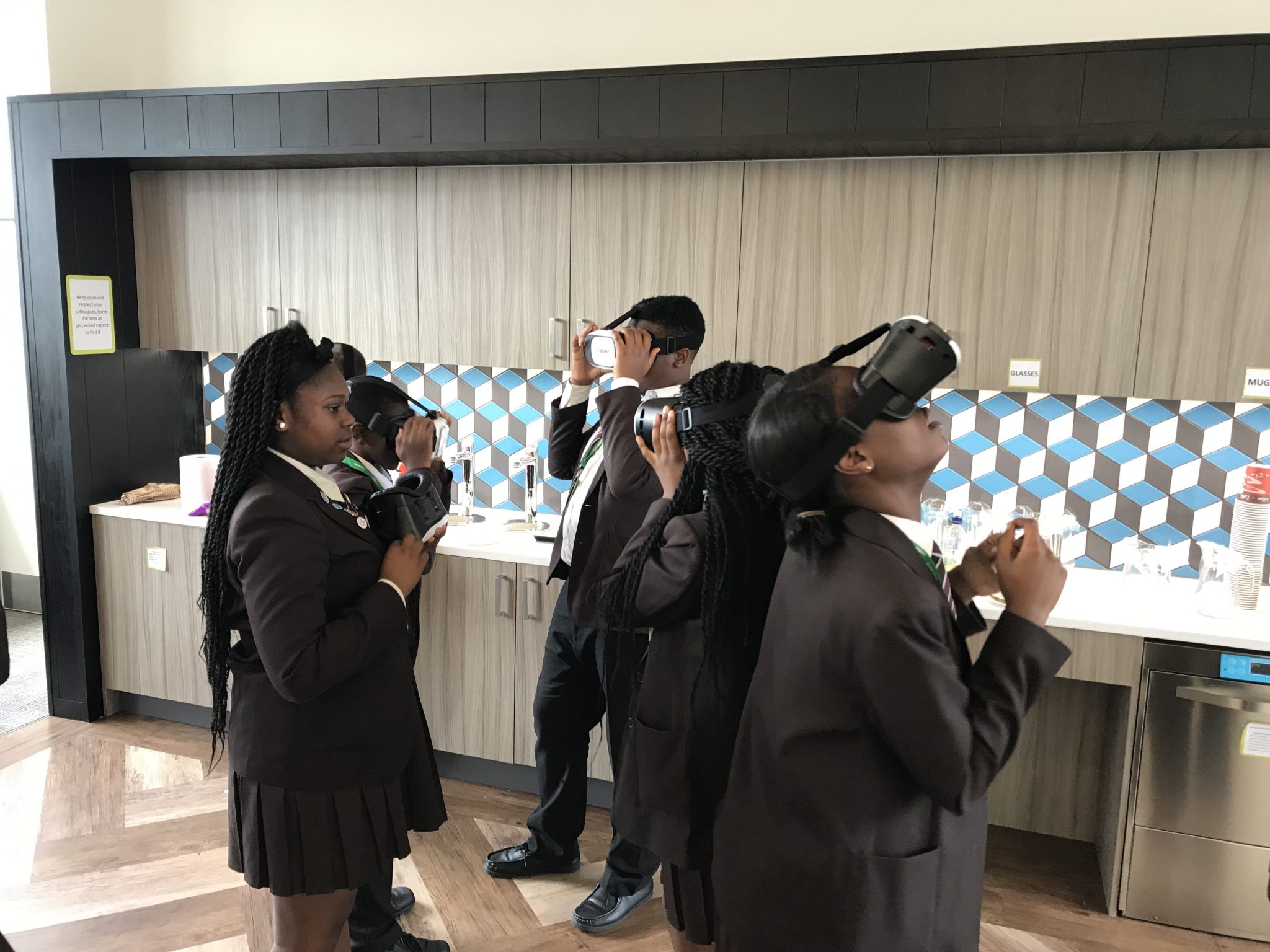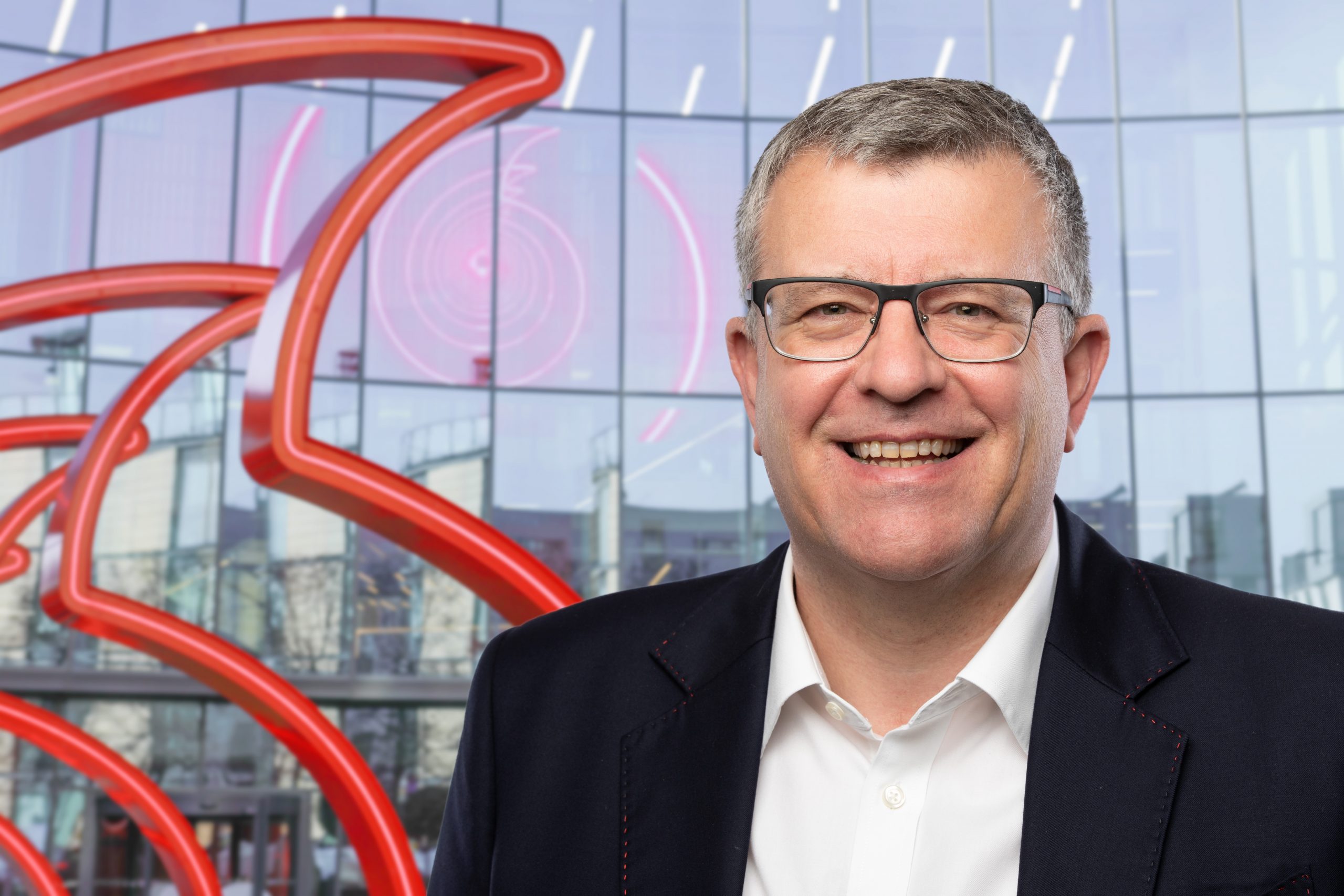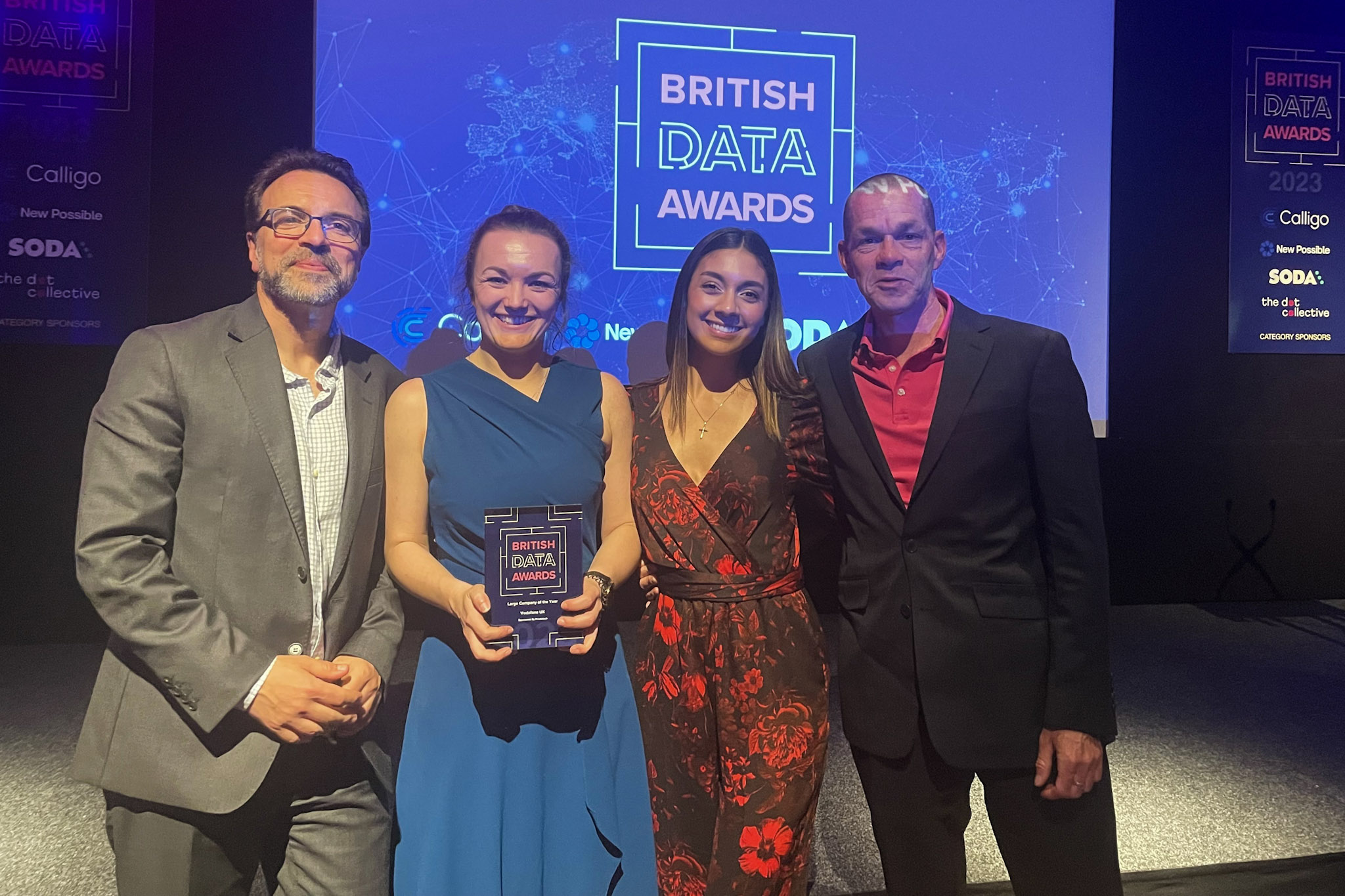
Adam Parsons, Director of Human Resources at Vodafone UK, talks about helping pupils from low-income communities develop their career and digital skills.
By Adam Parsons | Director of Human Resources, Vodafone UK

At a time when digital technology is transforming the workplace, how can we prepare young people for their future careers? In the next two decades, 90% of UK jobs will require workers to have some level of digital know-how, according to research by Deloitte. But many children from low-income families still lack basic digital access at home. More than half, or 55%, of households in the lowest income group have no internet connection, whereas all households in the highest income group have an internet connection, ONS figures show.
Providing opportunities to learn career skills
At Vodafone UK, we want to help young people today prepare for the jobs of tomorrow. We want to offer insight into the world of work and opportunities to learn essential career skills. This includes knowing how to use digital tools to accomplish key tasks, as well as how to put together a CV and communicate effectively in an interview. We also want to ensure that all pupils – regardless of where they live or how much their parents earn – can benefit from the work opportunities Vodafone has to offer.
That’s why we have teamed up with Teach First, a charity that helps pupils from low-income communities succeed in school, to launch our first Insight Day programme. This programme brings pupils from schools that partner with Teach First to Vodafone offices around the UK for a day of talks and activities. The day is designed to help pupils develop their career skills and digital skills, and have fun along the way. Here’s an exclusive behind the scenes look at how it went at the launch of our first Insight Day.
Using digital tools to find ways into work
On the morning of 29 September, we welcomed 40 pupils aged between 14 and 18 from two schools in London – Addey & Stanhope School and St Mark’s Academy – to Smale House, our London base.
We got the ball rolling with a discussion about the use of social media. These days almost all young people have social media accounts – 96% of 13-to-18 year olds are on platforms like Facebook, Instagram, Snapchat and Whatsapp, according to a survey for CBBC Newsround – so knowing what is appropriate to share is an essential digital life skill.
For the pupils, the highlight of the morning’s events was the chance to experiment with virtual reality (VR) headsets. They chose from a selection of VR videos, including a rollercoaster ride, a skydive, and a safari, and there was plenty of excited chatter in the room as their videos began to play. The experience felt so real that one pupil said he had to crouch on the floor so as not to lose his balance. Stephen Ogunskim, a pupil at St Mark’s, said his experience with VR was “scary but amazing,” while his schoolmate Hamza Ravi said he found it “exhilarating”.
The App Challenge: creating an educational app
The big event in the afternoon was the App Challenge, a 90-minute competition. We asked everyone to work in teams, and provided each team with a tablet. The challenge was to come up with ideas for an educational smartphone app. Aimed at 16 to 18 year olds, the app would help teens learn about work opportunities after school, and possible routes into the job market. Pupils had to come up with a name for their app, and consider questions like what kind of information it should offer, what the user interface might look like, and whether the app should be free or sponsored.
To spark inspiration, pupils spent part of their time using their tablets to research and interact with apps they liked. We gave each team large sheets of flipchart paper to sketch out their ideas, and at the end of the allotted time, they were tasked with pitching their app to a panel of judges. Each team had a fresh take. One pitched an app that would allow users to search for sixth form openings, for example, while another focused on apprenticeships. At the end of the session, two teams emerged as winners.
An opportunity to practise digital skills and get creative
One winning team proposed a work experience app that would allow young people to describe their dream job and search for opportunities by age and education level. The other suggested a job hunting app that would make use of augmented reality to make the job search feel like a game. Pupils said they enjoyed how the App Challenge encouraged them to use their imagination. “It gave me the opportunity to be creative,” one said.
By inviting pupils to think critically about apps, the App Challenge enabled pupils to practise some key digital skills, such as using digital tools to generate new ideas. And since all pupils had to pitch their app to a panel of judges, the challenge also helped them to develop their communication skills, while building up their confidence.
Help us spread the word
At Vodafone UK, we’re building a community of volunteers to support our work with Teach First. We’re inviting our employees to take part by doing things like:
- leading an innovative challenge during our Insight Days
- visiting a local school to teach students about tech-related topics such as cyber security, or
- hosting a work experience pupil for a week or two to help them build their career skills.
Through a series of Insight Days to be held over the coming months, we expect to host up to 800 pupils in this financial year alone. For updates on our activities beyond that, watch this space!
Graduates and students interested in work opportunities at Vodafone, please click here. You can find out more about our graduate and intern programme, apprenticeships and work experience placements as well.
We’d also like to encourage those interested in Teach First’s work to visit their website to find out how you can help. Together, we can ensure that all children in the UK have the support they need to thrive at school, and in their future vocations.




